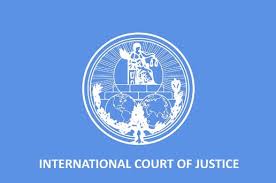Concept of Domicile in Private International Law
Concept of Domicile in Private International Law
Domicile is a key legal concept in Private International Law (Conflict of Laws) used to determine a person’s personal law—that is, the legal system that governs matters like:
Marriage and divorce
Succession/inheritance
Capacity to contract
Legitimacy and adoption
✅ Definition of Domicile:
Domicile refers to the place where a person has their permanent home or intends to reside indefinitely. It is not the same as residence or nationality.
A person can have multiple residences, but only one domicile at a time.
🧭 Types of Domicile:
| Type | Description |
|---|---|
| Domicile of Origin | Acquired at birth from parents (usually the father's domicile, or mother’s if unmarried). |
| Domicile of Choice | Chosen by a person of full age and capacity by settling in a new place with the intention to remain indefinitely. |
| Domicile by Operation of Law | Imposed by law (e.g., for minors or mentally incapacitated persons—usually the same as parents or guardians). |
⚖️ Importance in Private International Law:
Determines Personal Law:
For issues like marriage validity, divorce, legitimacy, and inheritance.
Jurisdictional Questions:
Courts use domicile to decide whether they have jurisdiction in cross-border legal matters.
Choice of Law:
In cases involving foreign elements, courts often apply the law of the country of domicile.
Tax and Legal Residency:
In some systems, domicile affects tax obligations and legal status.
🔄 Changing Domicile:
To change domicile, two conditions must be met:
Residence in the new place.
Intention to remain permanently or indefinitely.
Temporary residence or living abroad for work or study does not usually change domicile.
📌 Key Differences: Domicile vs Residence vs Nationality
| Term | Meaning |
|---|---|
| Domicile | Permanent home; requires intent to remain indefinitely |
| Residence | Physical presence; can be temporary |
| Nationality | Legal bond with a state; based on citizenship laws |
🏛️ Relevant Cases/Examples:
Udny v. Udny (1869): A foundational case in English law defining domicile as the place where a person has their permanent home.
Qatar Airways v. Radha (Example): If a legal dispute arises between parties from different countries, the court may determine which personal law applies by looking at the domicile.
📘 Summary:
Domicile connects a person to a legal system for personal law matters.
A person has only one domicile at a time.
It's based on intention and residence.
Critical in resolving cross-border legal disputes.
Do write to us if you need any further assistance.












comments